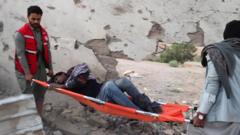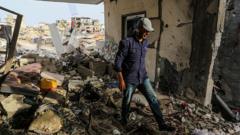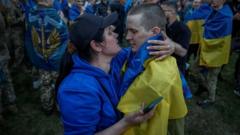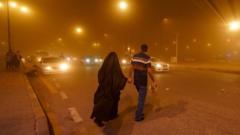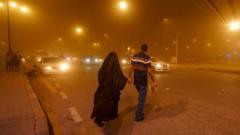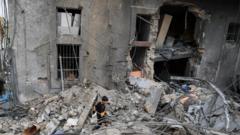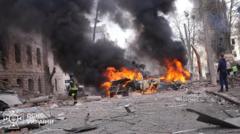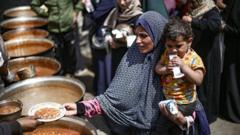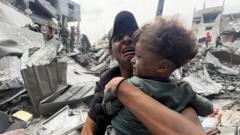The article delves into the struggles of Iraqi Kurdistan villagers, their diminishing access to land, and the broader implications of Turkey's military expansion into the region.
**Inside Iraq's 'Forbidden Zone': Life Under Turkish Military Control**
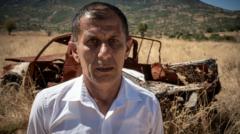
**Inside Iraq's 'Forbidden Zone': Life Under Turkish Military Control**
An exploration of the harsh realities faced by residents of Sergele amidst military occupation by Turkey.
Nestled in the striking hills of Iraqi Kurdistan is the village of Sergele, where generations of residents have thrived on agriculture, growing pomegranates, almonds, and peaches, as well as foraging for wild fruits and spices. However, the idyllic setting is now overshadowed by an escalating Turkish military presence. Located just 16 kilometers (10 miles) from the Turkish border, Sergele finds itself increasingly surrounded by Turkish military bases aimed at countering the Kurdish militant PKK (Kurdistan Workers' Party).
Farmer Sherwan Sergeli, 50, laments the impact of this military expansion on his livelihood, stating, "This is 100% a form of occupation of Kurdish lands." Over the past two years alone, no less than seven military bases have emerged in the vicinity of Sergele, including one that jeopardizes the village's water supply, effectively rendering parts of the land inaccessible for villagers.
Sergele is now caught in the crosshairs of Turkey's ongoing conflict with the PKK, which has been in an insurgency since 1984. The area, known locally as the "Forbidden Zone," is fraught with danger, as reported civilian casualties continue to rise due to drone and air strikes. A human rights organization points to the grim reality, noting that hundreds of civilians have perished, and entire villages have been abandoned due to the ongoing violence.
The BBC's investigative team recently documented Turkish air operations around Sergele, where aerial bombardment is common as military efforts strive to displace PKK militants from their hideouts in caves across northern Iraq. Sherwan expresses fears about the deteriorating situation, saying, "The more bases they put up, the worse it gets for us."
Turkey's military footprint in Iraq has escalated significantly in recent years; as of late 2024, at least 136 military installations have been identified, with the Turkish military effectively controlling over 2,000 square kilometers (772 square miles) of territory. This is a substantial increase from previous years, further tightening the grip that Turkish forces have on this Kurdish region.
In nearby Kani Masi, once renowned for its apple production, the community is now largely deserted as residents flee the area under the distressing shadow of a large Turkish military base. Farmer Salam Saeed echoes this sentiment, sharing his inability to cultivate his vineyard for three years due to military surveillance and operations that threaten his life.
Despite vocal opposition from Iraq's government against Turkey's military presence, the reality on the ground depicts a nuanced relationship, with Iraq accordingly accommodating some of Turkey's demands. A recent memorandum of understanding permits Turkey to operate freely in the region under the guise of counterterrorism efforts against the PKK.
Yet, the situation for civilians remains dire. Families face devastation from military actions, including tragic incidents such as the murder of 24-year-old Alan Ismail from an air strike, which has drawn attention to the pressing need for accountability. The Kurdish authorities, however, appear reluctant to clash with Turkish military interests, even as they acknowledge the loss of civilian lives amid ongoing hostilities.
With mounting civilian casualties and the normalization of military engagement in the region, distressing questions linger about the future of the Kurdish population living on the edge of conflict, a future marred by uncertainty and loss. The authorities’ failure to adequately address these humanitarian concerns leaves families grappling for recognition and justice while living under the shadow of foreign military control.

